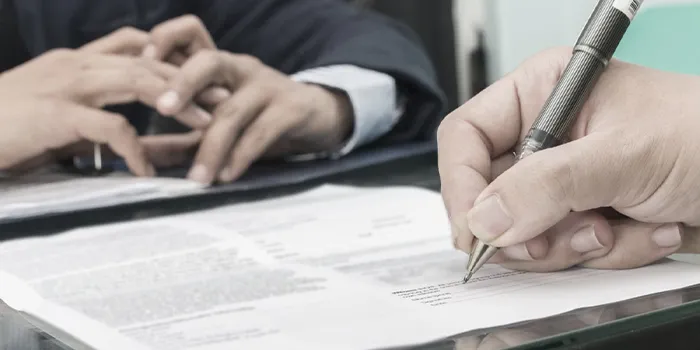UK Trustees – liabilities and responsibilities

Trustees have a crucial role to play in a trust, which involves the management of assets which in essence belong to the beneficiaries. A close relationship of trust and confidence therefore arises between the trustee and the beneficiaries.
Trustees must comply with numerous duties and take on significant responsibilities and potential liabilities. The standard expected of professional trustees when carrying out their duties is higher than for non-professional trustees. It is, therefore, essential that trustees understand their duties and carry them out appropriately and properly, as follows:
Fiduciary Duty:
- Trustees owe a fiduciary duty to act in the best interests of the beneficiaries and the trust itself.
- A trustee must act fairly when making investment decisions and distributing a trust so that one beneficiary or class of beneficiaries is not advantaged over others.
- Any potential conflicts of interest should be declared by a trustee before they accept the appointment. If any conflicts arise subsequently, they should be disclosed immediately to the settlor and the co-trustees.
Prudent Management:
- Trustees are responsible for the prudent management of trust assets, including investments, and must undertake their role in a way which reflects the duty of care and skill owed to the beneficiaries.
- A trustee must take significant care in choosing and making investments. Investments must also be reviewed regularly to assess whether they are still appropriate. A trustee has a duty to take professional advice on investments made.
Compliance with Trust Deed:
- A trustee must familiarise themselves with the trust instruments so that they act in accordance with the trust provisions when managing the trust.
- Trustees must adhere to the terms and conditions specified in the trust deed or document that establishes the trust. This includes following any specific instructions regarding the distribution of assets to beneficiaries.
- Regular communication with beneficiaries is important, keeping them informed about the status of a trust.
Duty to Account:
- Trustees must provide beneficiaries with information about the trust’s administration, including about the nature and value of trust property, together with investments and distributions made.
- Trust accounts should be properly maintained and be made available to beneficiaries.
- Beneficiaries generally have the right to request information about the trust.
Acting Impartially:
- Trustees must treat all beneficiaries fairly and impartially. This is particularly important when there are multiple beneficiaries with potentially conflicting interests.
Legal and Tax Compliance:
- Trustees must ensure that the trust complies with relevant legal and tax regulations.
- They may need to file tax returns for the trust and pay any applicable taxes.
Managing and Distributing Assets:
- Trustees are responsible for managing and, eventually, distributing trust assets according to the terms of the trust.
- They may need to make decisions about selling or transferring assets, depending on the trust’s goals.
Liability:
- Trustees are personally liable for all decisions they take in that capacity, and their liability is not automatically limited to the value of the trust fund.
- Trustees can be personally liable for any breaches of their duties. This liability may include financial restitution for losses incurred by the trust or beneficiaries due to a trustee’s actions.
- Trustees remain personally liable for events during their trusteeship, even after they have retired. Retiring trustees typically request an indemnity from their successors.
- The Court has an inherent power to remove a trustee under its jurisdiction to ensure that trusts are properly administered in the beneficiaries’ best interest. This power can be exercised where a trustee has acted in breach of their duties, or where the relationship between the beneficiaries and the trustees has irretrievably broken down.
Insurance:
- Trustees may consider obtaining liability insurance to protect themselves from personal liability in case of legal claims related to their role as trustees.
- It is essential for trustees to seek legal advice and potentially consult with financial professionals to ensure they understand and fulfill their duties appropriately. Professional trustees may have additional regulatory obligations.
Trustee charging:
- A trustee must not use their position to their personal advantage. This means they have a strict duty to account to the trust for any profits arising from the trust property.
- A trustee does not have an automatic right to charge for acting as a trustee, although he/she can recover expenses. Many trusts permit professional trustees or trust corporations to charge. There is also a statutory power to charge where acting in that capacity. However, non-professional trustees cannot charge without the permission of all the beneficiaries.
It is important to note that this information provides only a general overview, and specific details may vary depending on the type of trust and the terms of the trust deed. Legal advice should be sought for precise information.
“Acting as a trustee is a complex matter,” said Stuart Stobie, Managing Director of Sovereign Corporate & Trustee Services Ltd (SCATS). “Not only does it involve a thorough understanding of your duties to preserve the integrity of the trust, but there is a key requirement not to act in conflict with the interests of the beneficiaries. This is only achieved through an independent trustee, and it is for this reason that we encourage the use of professional trustees.”
Since its establishment in 1987, the Sovereign Group has grown into one of the largest independent providers of corporate, private client, retirement planning, insurance and tax services. We have developed a comprehensive corporate services and private client offering and have in-depth experience or providing a wide range of solutions for all Trust requirements. To find out more about how we can help, get in touch below.
